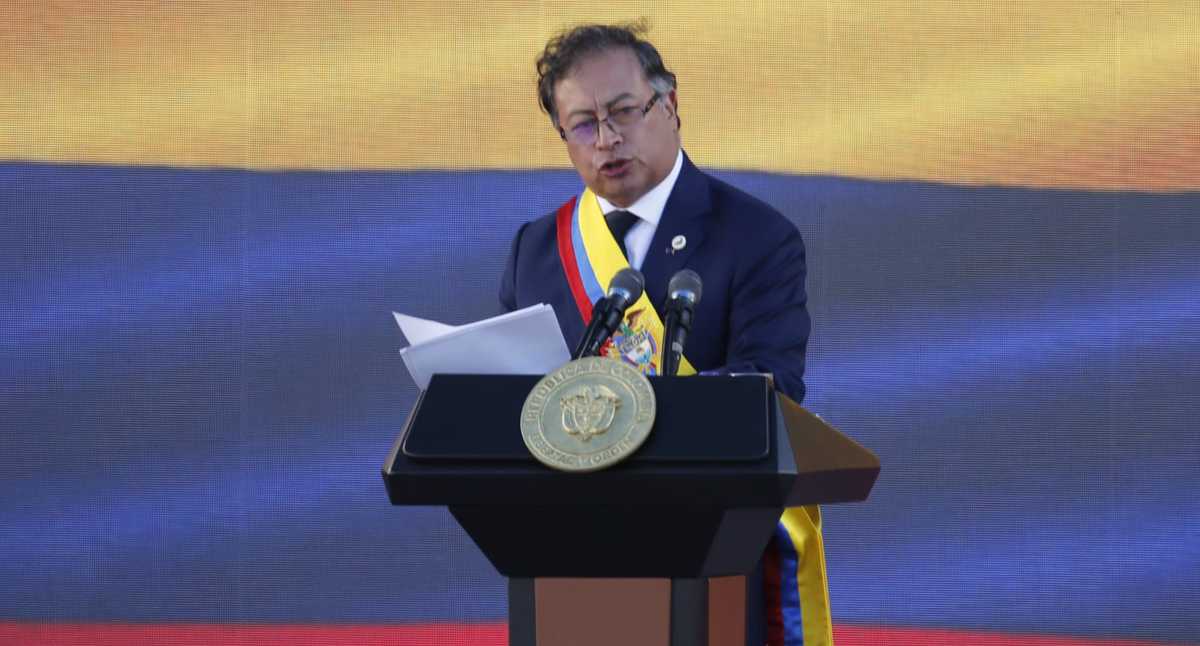Colombia’s new leftist government filed on Monday before the majority-government Congress a bill to make the rich pay more taxes and finance its ambitious social programs against poverty and inequality with new resources.
The recently inaugurated economic team of President Gustavo Petro presented the tax reform for its rapid legislative processing.
The initiative seeks to “strengthen the taxation of those with greater taxpaying capacity” and reduce exemptions for “the wealthiest”, according to an official summary shared with the media.

The Minister of Finance, José Antonio Ocampo, explained that the tax burden would fall on individuals with monthly incomes of more than COP 10 million per month (US$2,320), representing 2.4% of the population.
“The biggest increase is only for some 34,000 people” considered as the “ultra-privileged in the Colombian tax system,” Ocampo added.
With the reform, Petro’s government aims to collect COP 25 trillion by 2023, equivalent to 1.72% of GDP, and COP 50 trillion by 2026 through a more effective collection.
It also sets new taxes on wealth, sugary beverages, ultra-processed products such as sausages, inheritances, and occasional gains, such as lottery prizes.
According to the government, tax revenues currently represent 13% of GDP, below the average for Latin America (14.8%).
Petro took office on Sunday with a plan of profound reforms to strengthen the state, reduce poverty, which affects 39% of the 50 million Colombians, and narrow the gap between rich and poor, the widest in the region according to the Gini inequality index.
He also promised to leave behind the extractivist model and move towards clean energies and care for the environment. The reform presented on Monday proposes to increase taxes on oil, coal, and gold exports, as well as on single-use plastics.
The new president receives finances hard hit by the pandemic, with an estimated fiscal deficit of 5.6% of GDP for this year and a public debt of around 56.5%.
Since Petro’s election on June 19, there was great expectation for his tax proposal, especially among some sectors that feared a confiscatory reform.
However, the Colombian Businessmen’s Association president, Bruce Mac Master, highlighted the government’s decision to stay within the debt and deficit levels imposed by the so-called fiscal rule.
“It is a very good sign for the markets and will order many of the discussions,” Mac Master wrote on Twitter.
With majorities in the Legislative, Petro’s government will file most of its proposals in the administration’s first days.
The president of the Senate, Roy Barreras, assured Minister Ocampo that the legislators would have “all the disposition to widely discuss this tax reform with a message of urgency”.
“This Congress has its foot on the accelerator because we have to comply with Colombia,” assured Barreras.
Also, Congressman David Rocero, president of the Lower House, affirmed on Twitter that he would guarantee “an open”, “broad,” and “agile discussion” of the law in the following weeks.
In 2021, the government of Iván Duque tried to tax the middle class to face the ravages of the health crisis, which unleashed violent protests that lasted for two months and left 46 dead, among civilians and police, according to the UN.
With information from AFP

